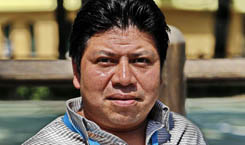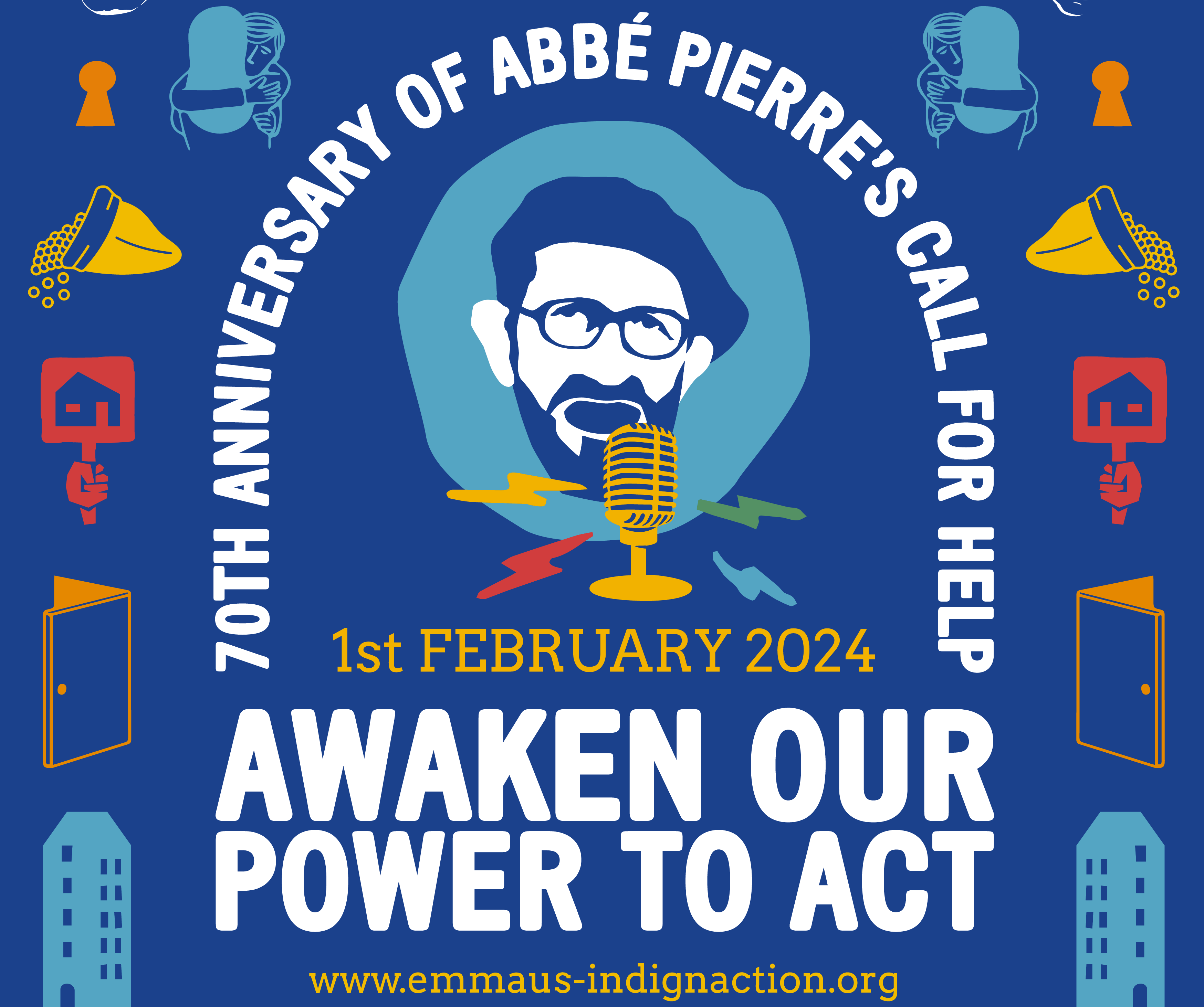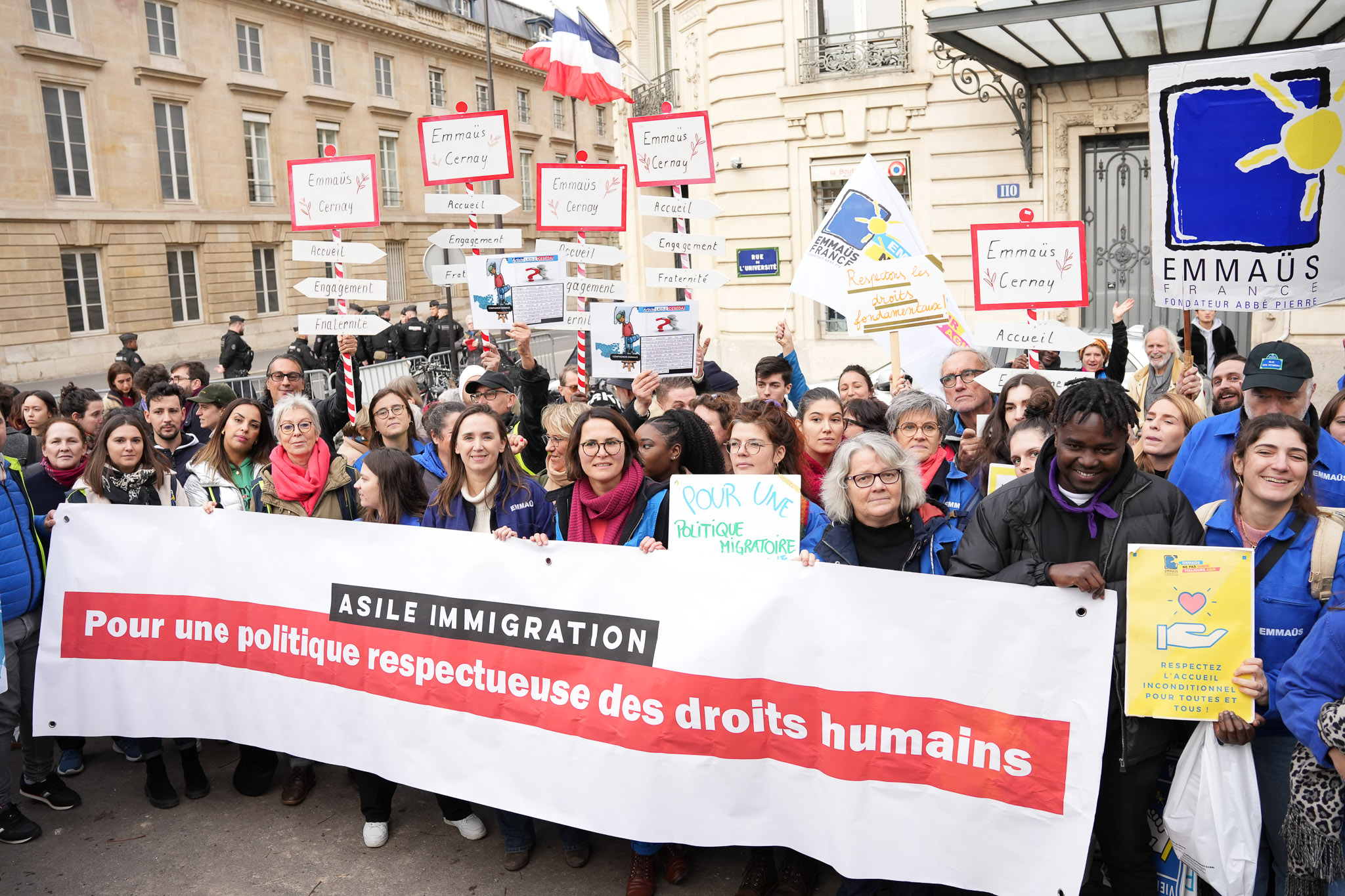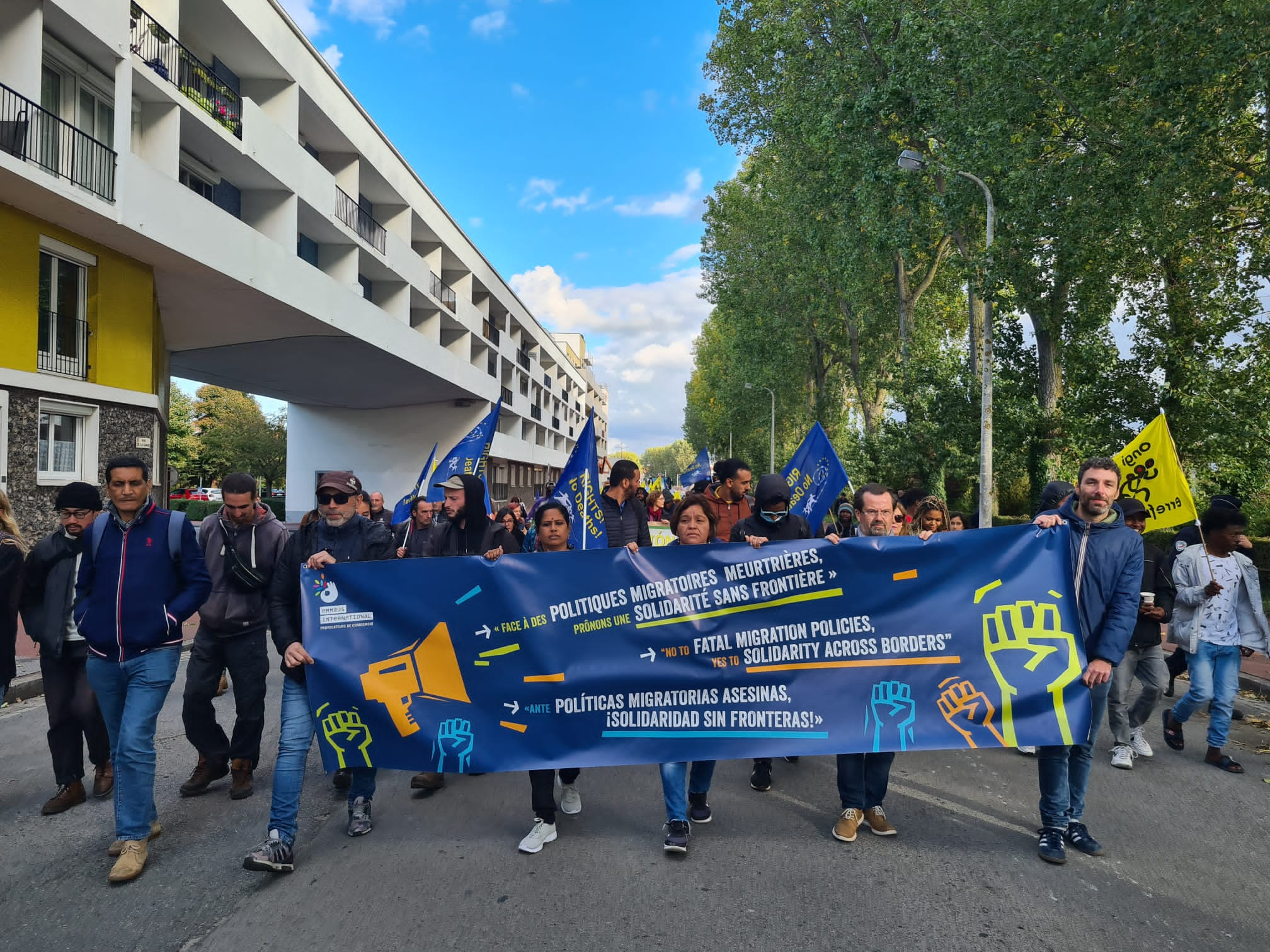WA 2016 : Miguel Ángel Tuctuc, “We always try to meet people’s needs”

Miguel Angel Tuctuc is part of the San Juan Comalapa Community in Guatemala. His meeting with Lucy Poulin, founder of Emmaus H.O.M.E (Homeworkers Organized for More Employment) in the United States, had a huge impact on his decision to start a community in Guatemala.
Before the age of 15, Miguel Angel Tuctuc left his country to avoid military service, obligatory for youth over the age of 12 at the time. He spent several months in Mexico and the United States, finally returning home with the goal of fighting poverty.
How did you learn about the Emmaus Movement?
I left Guatemala when I was very young. I spent several months working in Mexico, and with a few friends that I met on the road, we decided to cross the United States-Mexico border. The work we found there was very hard, and laden with desperation. I wanted a better life, so I decided to try to make it to Canada. At the Canadian border, there was a center for refugees managed by Lucy Poulin, the president of Emmaus H.O.M.E in the United States. She welcomed me and wanted to help me find my way to Canada. We began talking, and she asked me why I was there; I was only 15 at the time When I told her that I didn’t want to do my military service in Guatemala, she offered me shelter, a place to live. I told her ok, my goal isn’t money; I just want a better life. Years went by, and I returned home to Guatemala after the peace agreements. Since 1996, we have been building a small Emmaus Community, through our artisanal activities. We work with women, widows, and mothers who have been isolated; we try to offer them work and income. It’s not enough to live on, but we also try to train them in skills that they can use to get a job, so that they can live independently.
What is your role in the group?
Right now, there are only six of us. I’m the Treasurer. We don’t have a lot of resources; we have a lot of volunteers and one paid employee who only earns minimum wage. He works from 7 in the morning until 4 in the afternoon; he receives people who need small things, like clothing for their kids. We charge a small amount but if they can’t pay, we give them what they need for free. People also come when they have nowhere to go, they spend a day there, take a shower, change their clothes, eat something, then go. We don’t have anywhere where people can sleep at night but we provide a place to go during the day.
What does being a companion mean to you?
I love the spirit of the Emmaus Movement. The idea is to try to understand each other, to share ideas, to try to reproduce the same dynamic in more than one place. We try to welcome people; this is what Emmaus Communities do all over the world. I don’t think it matters whether you’re in a developing or a developed country; there are needs everywhere, different needs, but they are still needs. The main idea is to help each other. This is what I find beautiful about Emmaus, – we always try to meet people’s needs.
What is your image of Abbé Pierre?
He had a large spirit. He was generous and humble at the same time. He felt what others felt; he shared their feelings. This is the spirit that we try to continue, in our community; his ideas, what he did and what he created. He never hid what he thought; he knew how to see things, and to find solutions, not alone of course, but with support, and he was able to help. When I think about what he did, I want to try to do it also, not alone of course, but I can do everything in my power to try.


